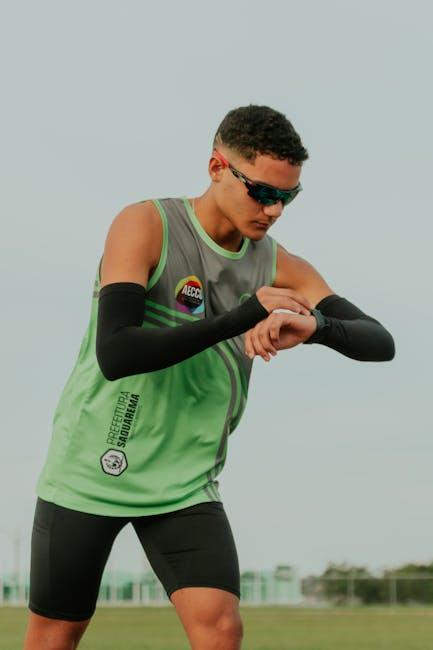
Innovative & Inclusive: Dental Tech Training for People with Intellectual Disabilities – Special Olympics
Access to proper dental care and oral hygiene education is a vital aspect of overall health, but for many people with intellectual disabilities, these resources can be difficult to obtain. The Special Olympics has pioneered an innovative and inclusive dental tech training program designed specifically for individuals with intellectual disabilities. Through adaptive technology and compassionate training models, this initiative not only enhances accessibility but also empowers participants to take control of their dental health.
Understanding the Need: Dental Care Challenges for People with Intellectual Disabilities
People with intellectual disabilities often experience disparities in dental care due to several barriers, including:
- Limited access to specialized dental professionals.
- Communication difficulties leading to misunderstandings during treatment.
- Inadequate adaptive tools tailored to unique needs.
- Higher prevalence of dental problems such as cavities, periodontal disease, and oral infections.
- Lack of consistent oral hygiene education programs designed for intellectual disabilities.
Addressing these challenges requires a focused approach—one that combines technology, education, and empathy.
Special Olympics Dental Tech Training: A Game-Changer
The Special Olympics has developed an innovative dental training program that incorporates technology and inclusive methods to aid people with intellectual disabilities. The program focuses on training participants, caregivers, and dental professionals to improve oral health outcomes, featuring:
- Adaptive Technology Integration: Tools such as simplified electric toothbrushes, visual aid apps, and custom dental kits designed to accommodate sensory sensitivities and motor challenges.
- Skill-Building Workshops: Hands-on sessions that teach brushing, flossing, and oral care in easy, engaging ways tailored to varied cognitive levels.
- Certification for Dental Professionals: Specialized training for dentists and hygienists on working empathetically and effectively with intellectually disabled patients.
- Community Outreach: Collaboration with caregivers and schools to bring dental health education beyond clinics into homes and classrooms.
Benefits of the Dental Tech Training Program
Implementing this dental tech training brings a host of benefits to all stakeholders involved:
| Group | Key Benefits |
|---|---|
| Individuals with Intellectual Disabilities | Improved oral health, increased independence, enhanced self-confidence, reduced dental anxiety. |
| Caregivers & Families | Better support skills, more effective oral care routines, improved communication with dental professionals. |
| Dental Professionals | Understanding of adaptive methods, increased patient satisfaction, professional certifications. |
| Community | Greater awareness about intellectual disability accessibility, reduction in health disparities. |
Real-Life Impact: Case Studies from Special Olympics Training
Several inspiring stories highlight the success of the program:
Case Study 1: David’s Journey to a Brighter Smile
David, a 22-year-old participant with Down syndrome, initially feared dental visits. Through the Special Olympics training’s use of visual step-by-step guides and a sensory-friendly electric toothbrush, David learned how to brush effectively and confidently. After 6 months, his gum health improved dramatically, and his dental anxiety decreased, enabling more regular checkups.
Case Study 2: Empowering Caregivers, Supporting Families
Jessica, a mother caring for her 15-year-old son with autism, attended training workshops alongside her son. The program’s customized tools and practical tips enabled Jessica to help her child establish a consistent dental hygiene routine, reducing hospital visits for dental infections and improving overall family well-being.
Practical Tips for Integrating Dental Tech Training at Home
Leverage these actionable strategies to maximize the benefits of dental tech training for people with intellectual disabilities:
- Create a Routine: Establish consistent daily times for brushing and flossing to build habit.
- Use Visual Supports: Picture schedules or apps showing brushing steps can simplify the process.
- Choose Adaptive Tools: Invest in technology such as ergonomic electric toothbrushes designed for motor difficulties.
- Positive Reinforcement: Celebrate progress with rewards or verbal praise to encourage engagement.
- Train Together: Caregivers and family members should learn alongside the individual for better support.
How to Get Involved with Special Olympics Dental Tech Training
Your involvement can help expand this inclusive movement:
- Volunteer: Assist in community outreach or training workshops.
- Donate: Support the development and distribution of adaptive dental technology.
- Advocate: Raise awareness about oral health disparities in intellectual disabilities at local and national levels.
- Enroll: Encourage participation in Special Olympics dental programs for families and caregivers.
Conclusion: Building a Future of Accessible Oral Health
The Special Olympics’ innovative dental tech training stands as a shining example of how technology and inclusivity can transform healthcare for people with intellectual disabilities. By addressing the unique dental challenges this community faces through adaptive tools and specialized education, the program fosters independence, health equity, and dignity. As awareness and participation grow, more individuals will benefit from improved oral health and a better quality of life—proving that with compassion and innovation, accessibility is truly within reach.


